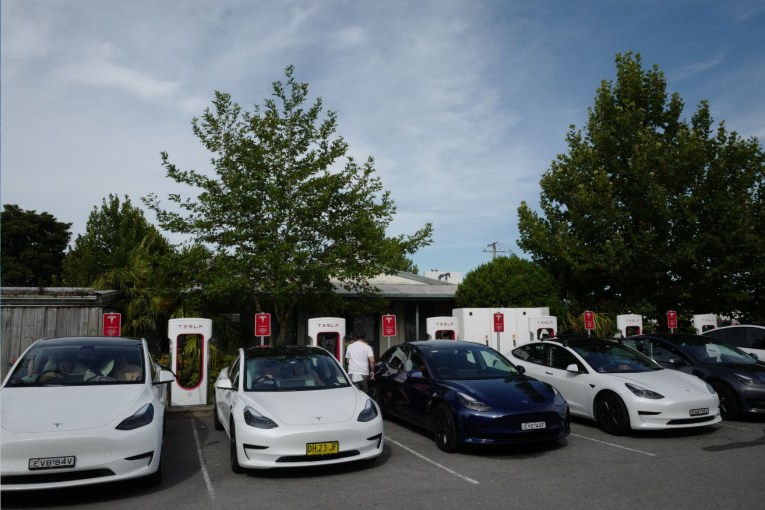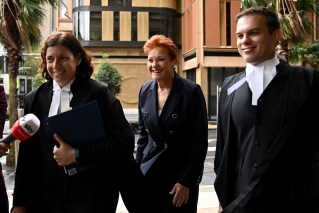Modi’s India is sick with more than COVID-19 – and Australia isn’t immune

If India’s ballooning coronavirus catastrophe has shocked the world, the response of Indian Prime Minister Narendra Modi has baffled it.
Faced with thousands of deaths a day, a collapsing healthcare system, and disaster on a continental scale, Modi has continued to hold political rallies, allowed enormous religious gatherings, and tried to censor media articles and Tweets critical of his government.
In a withering open letter last week, the national vice-president of the Indian Medical Association Dr Navjot Dahiya called Modi “a super-spreader”.
Besides promising to send medical supplies and then defending his government’s travel ban and jail threats, Scott Morrison has been quiet on India’s crisis.
But in April, he was singing Modi’s praises at the Raisina Dialogue, a geopolitical conference in Delhi. According to Morrison, “my friend, Prime Minister Modi”, is the leader of a “great liberal democracy”, working to “deliver peace and stability and prosperity for the shared benefit of all”.
“We’ve been friends a long time, Australia and India,” Morrison said.
“We have so much in common. Our values; our passions, especially for our democratic freedoms; our commitment to the rule of law.”
The irony of the architect of Operation Sovereign Borders waxing poetic about civil liberties aside, Morrison’s idyllic picture of Modi’s India looks very different to the autocratic shambles being exposed for the world to see. But the signs were there, if only he had been willing to look.
In his Raisina Dialogue speech, Morrison didn’t mention Freedom House’s most recent Freedom In The World report, which downgraded India’s democracy from ‘free’ to ‘partly free’.
It found “a multiyear pattern in which the Hindu nationalist government and its allies have presided over rising violence and discriminatory policies affecting the Muslim population, and pursued a crackdown on expressions of dissent by the media, academics, civil society groups, and protesters”.
The Morrison government’s blindness to Modi’s increasing authoritarianism goes beyond diplomatic pleasantries about strengthening ties.
In March 2020, then-trade minister Simon Birmingham refused to condemn anti-Muslim riots in Delhi that killed more than 40 people just days before he arrived in the Indian capital at the head of a trade delegation.
In November, high commissioner to India and former NSW premier Barry O’Farrell met with and praised the leaders of Rashtriya Swayamsevak Sangh, a far-right paramilitary society of which Modi is a member.
RSS is India’s foremost organisation devoted to the ideology of Hindutva, or “Hindu-ness,” which reimagines India as a Hindu state where other cultural and religious identities are either subsumed or expelled.
Foundational Hindutva thinkers such as M.S. Golwalkar and B.S. Moonje drew inspiration from Mussolini’s Italy, and praised Hitler’s Germany as a place where “race pride [is] at its highest”.
Stoked by RSS and Modi’s Bharatiya Janata Party, anti-Muslim riots in the western state of Gujarat in 2002 killed more than 2000 people. Women and young girls were stripped naked, paraded through the streets, gang raped, quartered, and burned alive. At least one pregnant woman was murdered by having her stomach cut open and her foetus pulled out.
Modi was Gujarat’s chief minister when the massacre occurred. Ever since, he has been accused of complicity, if not outright culpability. A senior police officer alleges that Modi told police and intelligence officials during the massacre that Muslims needed to be taught a lesson.
Ministers in Modi’s state cabinet allegedly participated in meetings where plans to carry out attacks were drawn up. In 2005, the US banned Modi from entering the country for his role in the riots.
But since Modi’s election as prime minister, Western leaders have looked the other way as he pushes to remake India into a Hindu nationalist state.
Overturning the 2005 ban, Barack Obama invited Modi to address the US Congress in 2014. Modi’s religious citizenship laws that single out Muslims, and his crackdown on the massive protests by Sikh farmers opposed to his free-market reforms, have largely been met with silence from Western governments.
That appeasement is having consequences in Australia.
In February, NSW police and riot officers intervened to stop people at a Hindu nationalist car rally vandalising a Sikh temple in Glenwood. In March, NSW Greens politician David Shoebridge questioned state government officials about Hindu extremist attacks on Sikhs in western Sydney, and on material prepared by Vishwa Hindu Parishad – a far-right RSS affiliate classified as a militant religious group by the CIA – being distributed and taught in NSW public schools.
Facebook community pages set up for members of the Indian diaspora in Melbourne have become hotbeds of anti-Muslim and anti-Sikh hatred.
Amar Singh is the president of Turbans 4 Australia, a Sikh charity organisation that has spoken out about the recent attacks. He says state and federal governments have been “turning a blind eye”.
“I’ve lived here for 22 years, and I’ve never seen race-hate attacks like this among the Indian community in Australia,” Singh says.
Modi’s regime has uplifted right-wing extremism in India. But I think the Australian government doesn’t want to burn their next big trade partner, especially given Australia’s trade dispute with China.”
Pawan Luthra, who co-founded the Indian Link community media group in 1994, agrees that local and international politics has made Australian governments reluctant to raise concerns about India’s human rights crisis.
“India is a friend that Australia needs to have, especially with what’s happening in south-east Asia,” Luthra says.
“The Hindu community is a huge and growing community; it’s one of the largest migrant groups in Australia. There are politicians at every Indian community event.”
India’s COVID crisis has done more than expose a broken healthcare system. It has shone a light on a desperately sick democracy – one that Modi is doing everything in his power to smother.
Morrison has offered aid to help with the first disease. Sooner or later, he will have to acknowledge the second.
Alex McKinnon is a journalist and media adviser. You can follow him on Twitter at @mckinnon_a.








